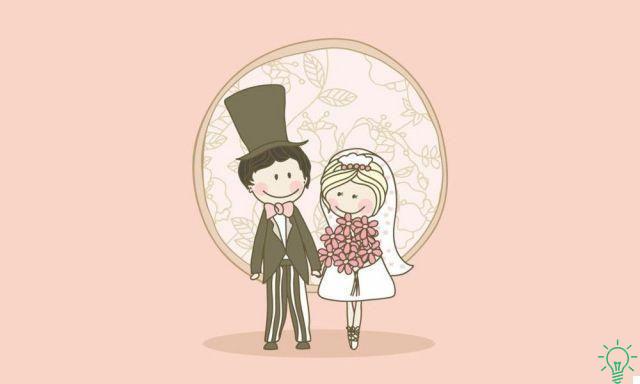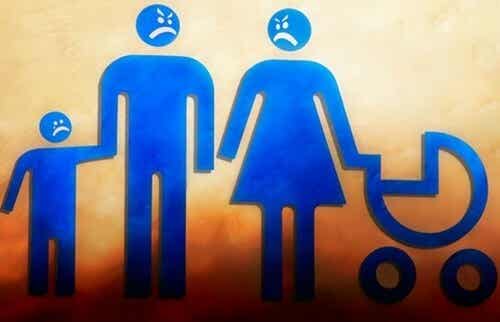The perfect family exists, and it is the one that protects, cares for, understands and accepts its members as they are. Growing up with this type of nourishment strengthens the identity of the individual, giving him the security and the ability to have the life he desires in total freedom.

Written and verified by the psychologist GetPersonalGrowth.
Last update: 15 November 2022
Love in the family is the basis of everything. Growing up, receiving an education and being part of a primary positive context, rich in affection, values and safety, plays a fundamental role in the psychological health of every individual. Part of who we are today is often a consequence of our early experiences and bonds with parents.
According to Salvador Minuchin, Argentine psychiatrist and author of structural family therapy, the family imprints their identity on its members in every culture. This happens in two opposite ways: on the one hand, through the sense of belonging; on the other, through the desire to separate from it. While it may seem contradictory, all of this has valuable meaning and teaching.
We all have a family inheritance, coming from that small social nucleus in which we have our roots. At the same time, regardless of how much we love our children, their purpose is to distance themselves from their parents. Creating a life of your own or building a new family or union is desirable and necessary. Ultimately, it defines our development as human beings.
Affection and love in the family are the backbone of all relationships. But in order for a family to be healthy and functional, one must know how to love. Let's deepen this aspect.
Love in the family and its elements
Family day is celebrated every 15th May. According to the UN, there are still many open fronts regarding the family, to which an imminent social and economic crisis linked to the current situation is likely to add up. It is therefore necessary to adopt family protection policies and respond to the needs of an increasingly complex and constantly evolving world.
The role of the family in society in areas such as childcare, education and care is undeniable. It is the foundation of human development and is also the foundation of social transformation.
Therefore, we are not referring only to a primary nucleus to be provided in terms of welfare and financial resources. Another aspect not to be overlooked is, undoubtedly, the psychological one.
Different types of families, same rights
Love in the family must always be present, regardless of the type of family unit. There are many singles who choose to live the adventure of being parents alone. There are extended families who live under the same roof: children, parents and grandparents who face difficulties together, participating together in the education of children.
Although not yet recognized in Spain, there are also homogenitorial families, which are also part of everyday life and therefore deserve recognition and respect.
The formation of these social nuclei favors the transmission of values, affection, optimal physical, emotional and psychological development of children, as well as of all the elements that define any healthy and functional family system. Among which:
- Good communication.
- Establish clear rules to promote the learning of norms and rights.
- Creating an environment in which to express emotions and learn to manage them.
- Express appropriate expressions of affection, especially avoiding the projection of the parents' traumas on their children.
- Educate in conflict resolution, assertiveness and healthy social relationships.
Love as nourishment and without impositions
Love in the family must be healthy and must provide the necessary support for each member to grow and to make their own choices in full respect.
As we all know, they also exist loves that hinder the child's optimal psychological and emotional development. This is the case of overprotection, or that excessive affection that ends up dominating and limiting.
Each family unit must understand that, in addition to the economic aspect and the more or less available resources, there is above all the emotional aspect. It does not matter which prestigious school the child attends, how many toys or clothes he has if the following aspects are missing:
- Reading comprehension. Understanding the point of view of each family member is critical. Knowing how to put yourself in the other person's shoes is essential for building strong and healthy bonds.
- Acceptance. This dimension is also an essential nourishment. Being loved for who you are, for the choices you make is what you need most from parents.
- Protection and care. It is a clear concept to everyone: to love means to take care of the other. Few things are as comforting as feeling protected and considered by loved ones and being able to reciprocate at the same time.
To conclude, nothing is more important than love in the family, what it is envelops, but also knows how to let go. Being clear about where our roots lie, but still being free to have the life we want is an essential aspect of psychological well-being and happiness.


























